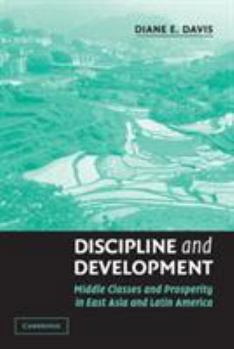Discipline and Development
Select Format
Select Condition 
Book Overview
Perhaps the most commonly held assumption in the field of development is that middle classes are the bounty of economic modernization and growth. As countries gradually transcend their agrarian past and become urbanized and industrialized, so the logic goes, middle classes emerge and gain in number, complexity, cultural influence, social prominence, and political authority. Yet this is only half the story. Middle classes shape industrial and economic development, they are not merely its product; the particular ways in which middle classes shape themselves - and the ways historical conditions shape them - influence development trajectories in multiple ways. This is the story of South Korea's and Taiwan's economic successes and Argentina's and Mexico's relative 'failures' through an examination of their rural middle classes and disciplinary capacities. Can disciplining continue in a context where globalization squeezes middle classes and frees capitalists from the state and social contracts in which they have been embedded?
Format:Paperback
Language:English
ISBN:0521002087
ISBN13:9780521002080
Release Date:March 2004
Publisher:Cambridge University Press
Length:436 Pages
Weight:1.30 lbs.
Dimensions:1.1" x 6.0" x 8.8"
Customer Reviews
0 rating





